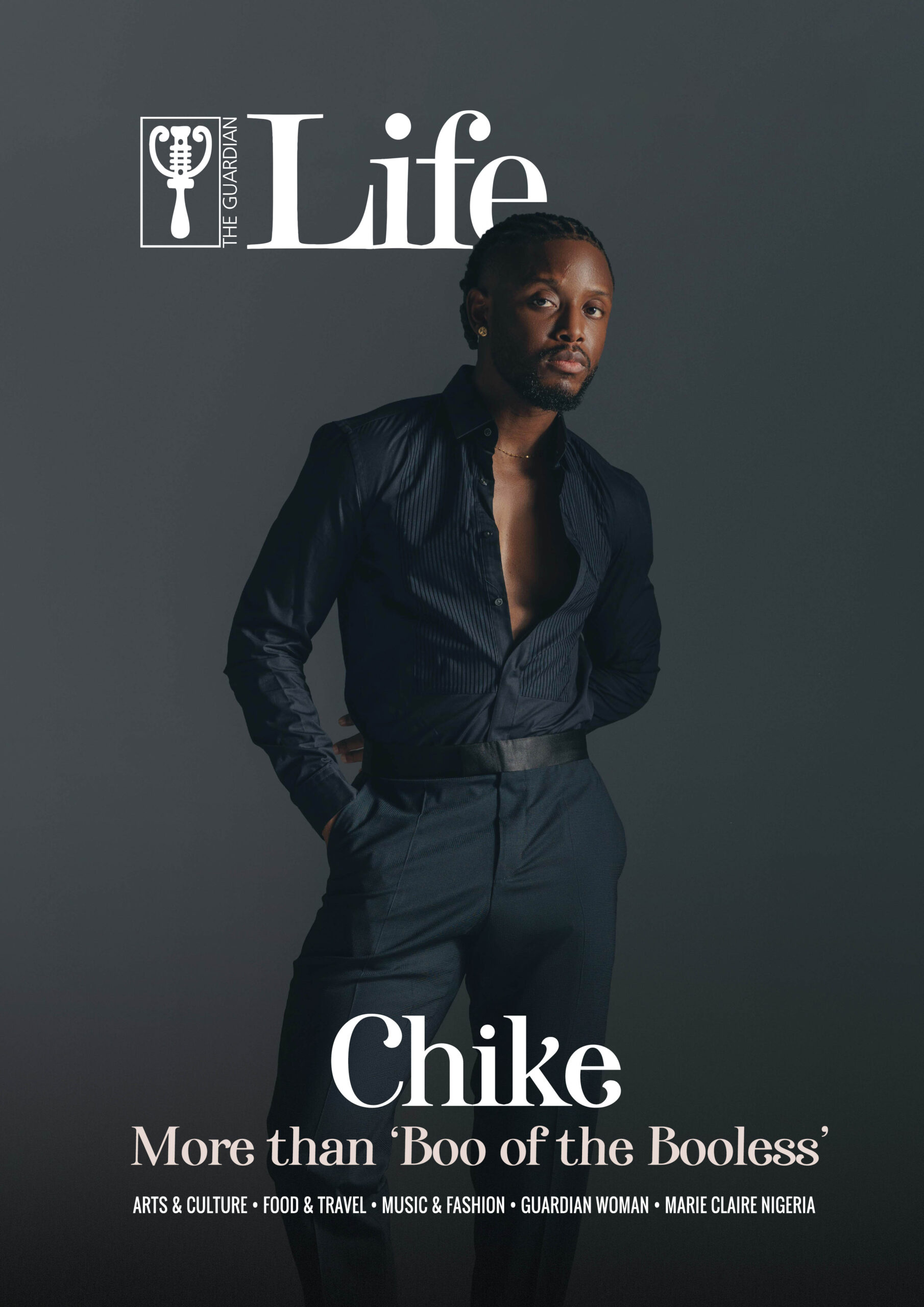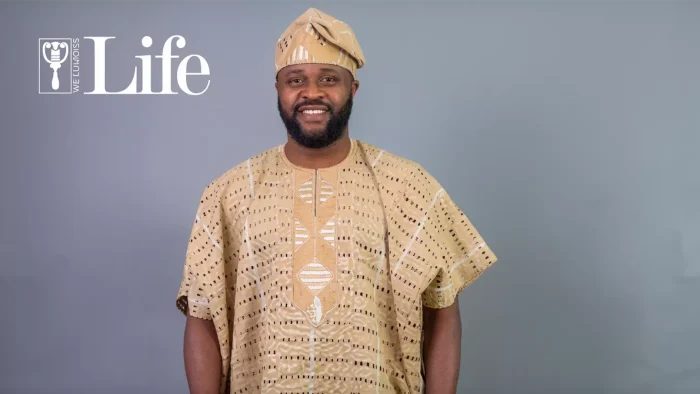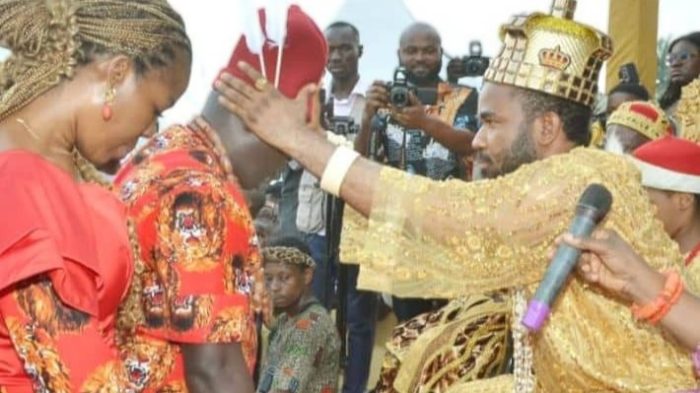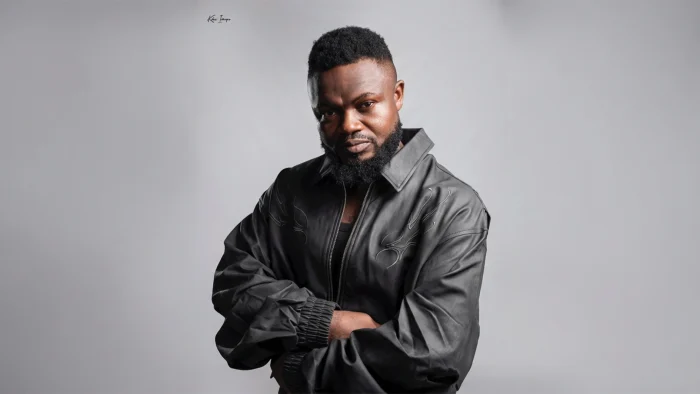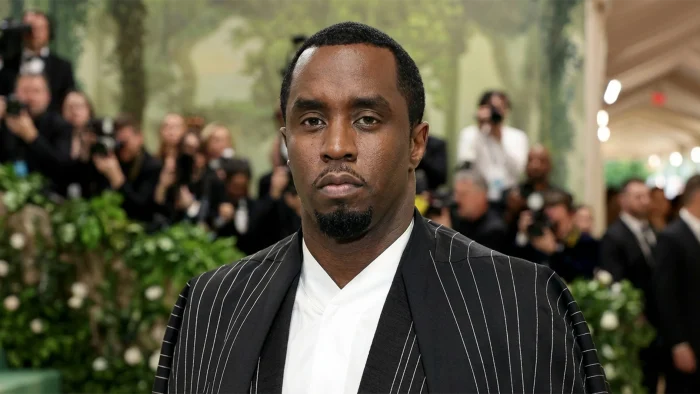
From the buzz of a Valentine’s Day debut to a dynamic evolution as an independent artist, Chike has continually redefined what it means to be a certified lover boy. In this story, we trace his journey—from the release of Boo of the Booless and the expectation it built, through the creative growth evident in Brother’s Keeper and Son of Chike, to his expanding role as both a musician and actor—while celebrating his deep cultural roots and authentic storytelling.
I remember when Chike dropped his Boo of the Booless album. It was a Friday on Valentine’s Day in 2020, and I was at the office, an editor for a tech and entertainment blog. The room where my team was housed was buzzing with conversation. Colleagues couldn’t stop raving about it.
Clocking in at roughly 46 minutes, Boo of the Booless wasn’t just another love-inspired record; it was an immersive experience for anyone who listened to it. We joked around that it was a ‘comfort album’ for those who were single on Valentine’s Day. But it was more than that: it was a culmination of years of work from his days on different music talent shows
Back then, Chike was no stranger. Many had followed his journey from those early singing competitions—including his cover of James Arthur’s Roses on The Voice Nigeria with his captivating voice—to the cusp of a promising career.
READ ALSO: Chike thrills fans at Trace Live
Certified lover boy
Chike Ezekpeazu Osebuka was born into a family of musicians who encouraged him to explore his sound. He gained prominence by participating in the Nigerian reality competition Project Fame West Africa in 2015, and then later in The Voice Nigeria the following year, where he finished behind winner Waje. However, his debut album marked a turning point for the singer, presenting a blend of heartfelt R&B blended with indigenous influences and unmistakable highlife rhythms. It was a sonic cocktail reminiscent of the classic sounds of Flavour, yet with a fresh, modern twist that was entirely his own.
Boo of the Booless was more than just a debut album; it was a declaration. After years of building anticipation through his electrifying performances on national stages, Chike’s release came at just the right time. The Detty December craze had just subsided, leaving space for a project that was both reflective and forward-thinking. With features that sparked curiosity and a mix of tracks that navigated every facet of love—from vulnerability to resilience—Boo of the Booless quickly became a touchstone for those who believed in the power of authentic storytelling through music.
The album’s raw storytelling about love—its joys, its heartbreaks, and the lingering questions left in its wake—captured the hearts of many listeners and firmly established him as a certified lover boy.
“I still proudly wear that hat,” Chike told Guardian Life. “It’s a big part of who I am. But over the years, my personal experiences have deepened my understanding of love, making me not just a better artist but a more expressive storyteller.”
“Love, in all its forms, continues to inspire my music in new and unexpected ways. This even shows in my other albums, The Brother’s Keeper and, most recently, Son of Chike,” he added.
READ MORE: Chike releases sophomore album ‘The Brother’s Keeper’

The spark of a cultural connection
Beyond his vocal prowess, what set Chike apart was his penchant for infusing his work with the rich textures of his culture. Singing in Igbo was deliberate.
“I believe that as Africans, our languages are more than just a means of communication—they are a reflection of who we are, and they bring a unique flavour to our music,” Chike said.
“For me, singing in Igbo isn’t just about standing out; it’s about feeling truly connected to my art. There are emotions, stories, and depths of meaning that I can express so much more naturally in my mother tongue.”
“From Boo of the Booless to Son of Chike, embracing my language has allowed me to be more honest in my music and build an even deeper bond with my listeners.”
This approach resonated with his fans, many of whom found in his music a reminder of home. By blending Igbo with English, Chike created a space where listeners could experience a dual narrative—a universal story of love and heartbreak told through a distinctly Nigerian lens. In a space where music is often dominated by generic soundscapes, his dedication to authenticity provided a refreshing counterpoint.
READ ALSO: Boo Of The Booless… Chike’s Ultimate Love Story
Evolving
The impact of Boo of the Booless was undeniable. It introduced him as a formidable talent in the Nigerian R&B and pop scene and laid the groundwork for his future projects. Riding on the wave of the debut’s success, Chike continued to evolve, releasing Brother’s Keeper two years later and then Son of Chike in 2024. Each album is built on the themes of love and vulnerability while expanding the musical and emotional range of his storytelling.
With each project, Chike became more deliberate in his creative process. Reflecting on this evolution, he noted, “There was a greater awareness of self during the creative process. I guess you could call that being more intentional. It’s not just about making music anymore; it’s about understanding the bigger picture—how the art and the business come together. This shift has allowed me to see things not just from a creative perspective, but also from a work and impact-driven perspective, which has been both challenging and rewarding.”
The shift from a spontaneous burst of creativity in his debut to a more thoughtful, planned approach in later works marks the maturation of an artist who is learning to navigate both his inner world and the complexities of the music industry. More than just the evolution of sound, his journey tells a story about a man who is constantly learning, adapting, and growing.
There is more to his evolution.
After his early days on major platforms and a brief stint with a record label, he chose to carve his own path.
“Being an independent artist is a constant learning experience. You find yourself picking up things you never thought you’d need to know, simply because there’s no big machine handling them for you,” he says.
“For me, it hasn’t been so much about surprises but rather adjustments. The biggest one? Gaining a firsthand understanding of just how much work goes into building a superstar. Seeing what labels go through behind the scenes to make things happen has given me a whole new perspective on the industry.”
This independence has been both a challenge and a privilege. It has forced him to wear multiple hats—artist, producer, marketer—and in doing so, it has deepened his understanding of the business side of music. The process, though arduous at times, has reinforced his commitment to authenticity. Every decision, every project is a reflection of his personal journey and the lessons he’s learned along the way.

On the high side of life
A significant part of Chike’s musical identity is his deep-rooted connection to highlife.
“Highlife is not just a genre for me; it’s part of my musical identity, a sound that feels like home,” he declares proudly. “It enables me to express myself in the most genuine and heartfelt manner.”
This connection to highlife is evident across his discography, allowing him to connect more authentically to both his roots and his audience.
“Seeing how deeply it resonates with my audience has been incredibly fulfilling. This experience serves as a beautiful reminder that when you create from a place of authenticity, the connection with others is undeniable.”
The rhythms and melodies in his songs evoke a sense of nostalgia while pushing the boundaries of modern R&B and pop. It shows how traditional music forms can evolve and remain relevant in a contemporary musical setting. For many his work feels like a bright between the familiar sounds of the past and the innovative beats of today, a bridge that invites listeners to rediscover the richness of Nigerian—particularly southeastern—musical heritage.
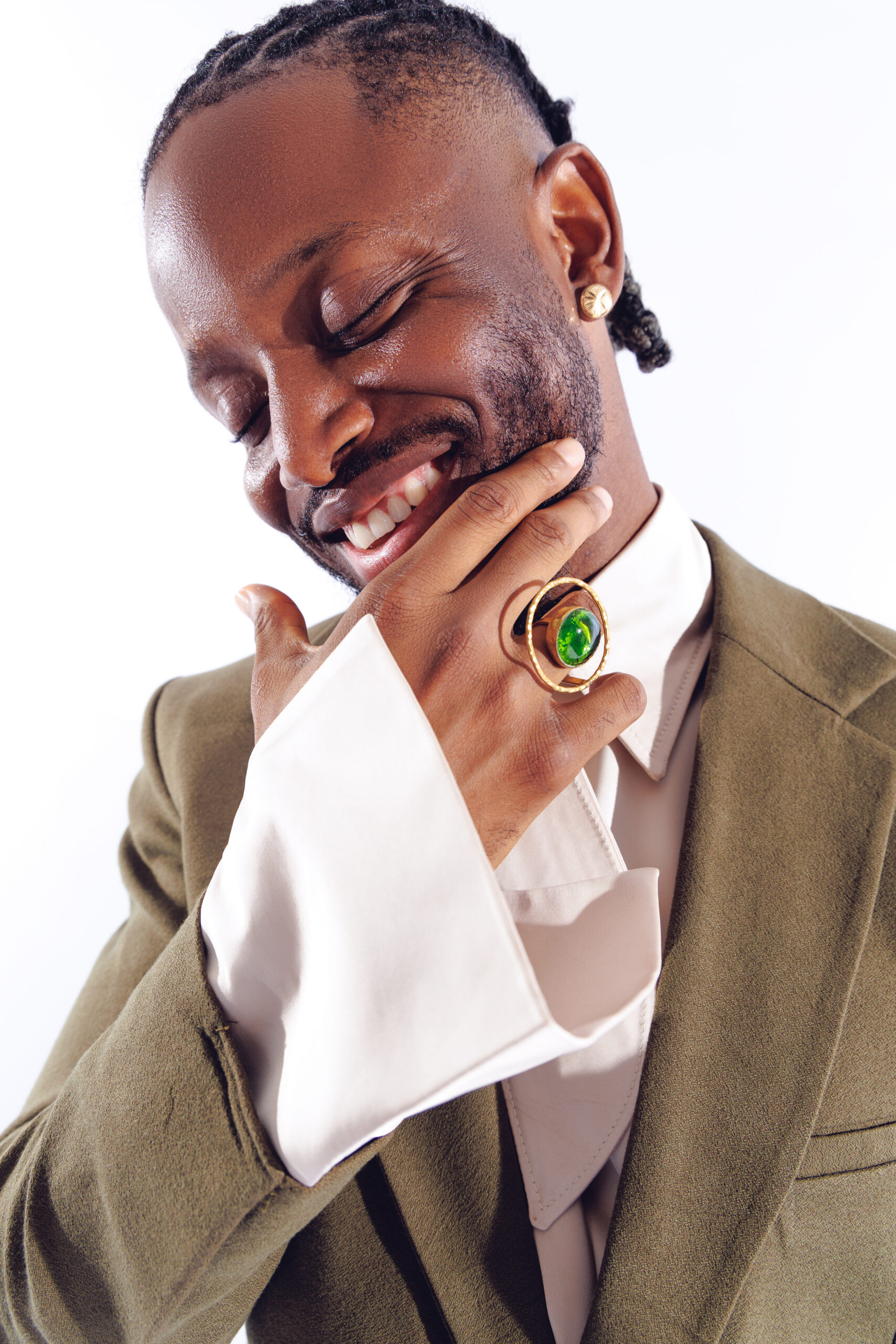
Beyond the music
While music remains the cornerstone of his career, Chike is also quite the actor, a path that complements his music storytelling.
“Naturally, my focus is more on music, but I’ve also realised that acting comes quite naturally to me as well,” he says.
This foray into acting lets him expand his artistic toolkit. Similar to his musical roots, it allows him to explore different facets of narrative, to embody characters that mirror the complexities and contradictions of real life. His character Ify in the box-office hit Gangs of Lagos evokes varying emotions and showcases the depth of his skills as an actor.
“I enjoy the challenge of stepping into different characters and bringing stories to life in a new way. While music will always be my first love, I definitely hope to take on more challenging acting roles in the future. There’s something exciting about exploring different forms of storytelling.”
Whether on screen or through his lyrics, Chike’s work is unified by a commitment to authenticity and a desire to tell stories that resonate on a personal level.
READ MORE: Chike releases official video to his latest single “Amen” | Watch
Chike’s future path
Today, five years after the release of Boo of the Booless, Chike has proven himself to be a multifaceted artist—a certified lover boy whose career spans music, acting, and cultural storytelling. His evolution from a young talent with a promising voice to a seasoned artist with a sizeable yet rich discography shows a story of continual reinvention.
“I believe in staying true to myself and not letting external pressures dictate my actions,” Chike said. “At the end of the day, my focus has always been on my craft and the bigger picture, which makes it easier to navigate fame without unnecessary distractions.”
Looking ahead, the future appears equally dynamic as he tours, records new music, and explores further collaborations.
“I’m already working on new music and exploring fresh creative directions,” he said. “There are also some exciting collaborations and projects in the pipeline. So, definitely expect more music, more storytelling, and maybe even some surprises along the way!”
